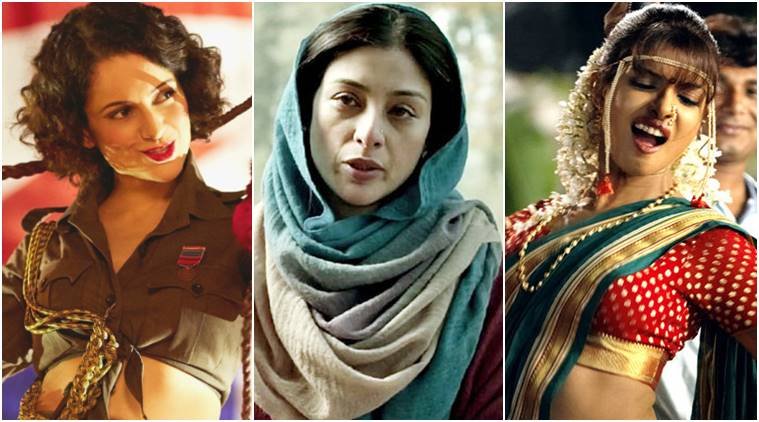"Bolo… wapas do, meri jaan.” Clad in fiery red, the gangster’s mistress tells the man she is in love with, dictating terms of affection he is too scared to say aloud. She does that, all the while pointedly holding a gun at him. The man, the gangster’s sidekick, asks her to give it back and then tries to overpower. She points the gun at the sky and pulls the trigger. She will not yield till he gives in. And he does. He repeats after her, aping the very tone she desires to be talked to in. And then she laughs, delighted at her own victory, till the man with the bruised ego slaps her right across her face and embraces her.
Maqbool is not only Vishal Bhardwaj’s first adaption of a Shakespeare play, but in many ways is the film that shaped the director’s oeuvre. Macbeth, much like other Shakespearian plays, gives a lot of weightage to the female character. In a play marked by a man’s uncontrollable and unrelenting march towards gaining power, it is Lady Macbeth who makes Macbeth aware of what he is capable of and also shows him the means to achieve it – by killing the King, Duncan. In a sharp departure, Bhardwaj’s Maqbool is posited in the murky underbelly of Mumbai’s underworld. Bhardwaj robs much of Lady Macbeth’s agency and legitimacy when he adapts her into Nimmi. A Muslim woman with a shady past, living with the mafia don Abbaji out of wedlock, Nimmi is a far more liminal figure than her literary counterpart. Bhardwaj, quite evidently, renders her even more powerless by placing her outside the domain of marriage. She is the mistress, and in turn a fallen woman.






